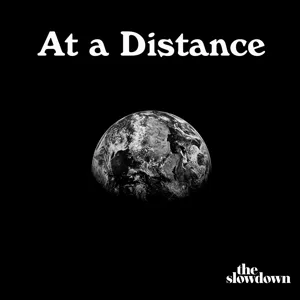Rebecca Solnit on Slowness as a Superpower







Astronomer Chris Impey, author of the new book “Worlds Without End: Exoplanets, Habitability, and the Future of Humanity” and a professor at the University of Arizona, discusses the vast possibilities of extraterrestrial human habitation, why imagination is an important form of scientific speculation, and why humans’ initial move to space will likely mirror the lawlessness of the Wild West.

Architect and novelist Lesley Lokko, the founder and director of the African Futures Institute and the curator of this year’s Venice Architecture Biennale, discusses how, for her, the rich context of Africa has always served as a “testing ground for ideas” about the future; why she has become disenchanted with the academic establishment over time; and how architects serve as translators between the imaginary and the real.
Episode sponsored by MUD\WTR.

UC Berkeley psychology professor Dacher Keltner, author of the new book “Awe: The New Science of Everyday Wonder and How It Can Transform Your Life,” talks about human emotion as a tool for making sense of the world, the extraordinary acts of kindness that take place around us all the time, and moral beauty as a way of life.
Episode sponsored by MUD\WTR.

Marina Koren, a staff writer at The Atlantic who covers science and space exploration, speaks about why the “overview effect,” the cognitive shift that can occur when seeing the Earth from outer space, needs to be studied and understood in a more nuanced way; the ongoing Elon Musk–Jeff Bezos space-race saga; and the vast, galaxy-wide importance of NASA’s James Webb Space Telescope.
Episode sponsored by MUD\WTR.

Sarah Jaquette Ray, author of the new book “A Field Guide to Climate Anxiety: How to Keep Your Cool on a Warming Planet” and a professor of environmental studies at Cal Poly Humboldt, discusses the importance of leveraging negative emotions for political change, the ties between the climate crisis and our own inner suffering, and how thinking differently about the world can lead to more positive feedback cycles.
Episode sponsored by Grand Seiko.
Stay up to date
For any inquiries, please email us at hello@podcastworld.io